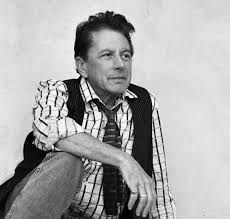Producer, Arranger, Band Leader, Legend - Quincy Jones dies aged 91
- jamesgeraghty
- Nov 4, 2024
- 4 min read
"Tonight, with full but broken hearts, we must share the news of our father and brother Quincy Jones' passing. And although this is an incredible loss for our family, we celebrate the great life that he lived and know that there will never be another like him."
(Jones family statement, 4 November 2024)

Quincy Delight Jones Jr. was a talented musician, composer, arranger and producer, who lived a very full life and worked with some of the greatest musicians in twentieth century popular music. He died yesterday, at the grand old age of 91, in Bel Air, California, with the cause yet to be confirmed.
He was born in south Chicago on 14 March 1933, the son of a semi-pro baseball player and carpenter father, and a bank officer mother. She would suffer a schizophrenic episode and end up hospitalised while Jones was young. His father remarried, and in 1943 he moved with his whole step-family to Bremerton, Washington, when his father got a wartime job at the Puget Sound Naval Dockyard.
They later moved into Seattle, and at Garfield High School, a young Quincy Jones starting playing music with his friend Charles Taylor. Aged fourteen, he would meet the not much older Ray Charles, a source of great inspiration to him (although it is alleged that Charles got him briefly addicted to heroin whilst still a child).
Aged 18, he started a scholarship at Seattle University, but managed to transfer to the Berklee College of Music in Boston after one semester. He left there before completing his course, lured away by a job as a touring trumpeter, arranger and pianist with Lionel Hampton's band.
Following that, he moved to New York City, working as a freelance arranger, briefly also working on CBS's Stage Show (hosted by Jimmy and Tommy Dorsey), before becoming the musical director and trumpeter for Dizzy Gillespie.
Europe briefly beckons
In 1957, he spent time studying composition and music theory in Paris, and worked a lot across Europe in the late 1950s. But in 1960, he returned to NYC and a job with Mercury Records, getting an auspicious promotion to vice-president in 1961.
Film Scores
His introduction into the world of movie scores came in 1964, when Sidney Lumet invited him to write the music for his film The Pawnbroker (starring Rod Steiger). It was to be the first of around fifty scores that he would compose, with others including In The Heat Of The Night, The Italian Job and In Cold Blood.
Other productions
1975 saw him establish his own Qwest Production company. And in the 80s he moved into film production - starting with The Color Purple, which was nominated for an incredible eleven Oscars. The following decade saw him also dabble in the world of TV, perhaps most notably as the man behind the smash hit, Fresh Prince Of Bel Air.
The music man
But he is probably best known and remembered as the man who worked for and with so many of the great musicians.
Frank Sinatra: I've Got You Under My Skin (Live at The Sands, 1966)

He struck up a great relationship with Frank Sinatra in the 1960s, but also arranged for the likes of Ella Fitzgerald, Peggy Lee and Dinah Washington. He produced dozens of hit albums, and is famous for taking the young Michael Jackson (they met on the set of the movie Wiz) and moving him away from the family band and on his way to mega stardom in his own right, producing Off The Wall and his blockbuster Thriller. But he would produce many other greats, including George Benson, Aretha Franklin, Dizzy Gillespie, Lena Horne and Donna Summer, He would end up with a more than creditable 28 Grammy's.
Michael Jackson: Billie Jean (Official music video)

He is also the man who managed to persuade 46 legendary musicians (Stevie Wonder, Michael Jackson, Bruce Springsteen, Paul Simon, Lionel Richie to name a few) to turn up for a night of charity recording for what would become We Are The World, the USA For Africa single to match what Band Aid had done in the UK. It wasn't a particularly memorable song, or even very good, but the fact that he could wrangle all those personalities into getting the job done was impressive in itself, and testament to his standing. He wrote a note on the recording studio door - "Check your ego at the door!"
The person

He did appear to live a very full life across his nine decades, with three marriages and seven children by five different women. His wives included Swedish actress Ulla Andersson and the actress Peggy Lipton, who is the mother to Rashida and Kidada Jones, who are also both actresses.
In 1974 he suffered a massive brain aneurysm that almost killed him - it was bad enough that he ended up attending his own memorial service, that his family and friends has started planning. It was also serious enough that he was told he could never play the trumpet again.
Actor Morgan Freeman wrote on social media:
"Today we say goodbye to the legendary Quincy Jones - a musical giant whose genius reshaped our world and left an enduring legacy. Rest well. Quincy. #Legend"
LL Cool J referred to him as a father figure and a 'mentor', backed up by Will Smith who said he was "the true definition of a mentor, a father and a friend.... He defended me. He nurtured me. He encouraged me. He inspired me."
Gloria Estefan (whose daughter Emily is Jones' goddaughter) said, "Throughout his life, at every stage, and on every stage he changed our existence for the better with every note of music he created and everyone he touched with his love."



Comments